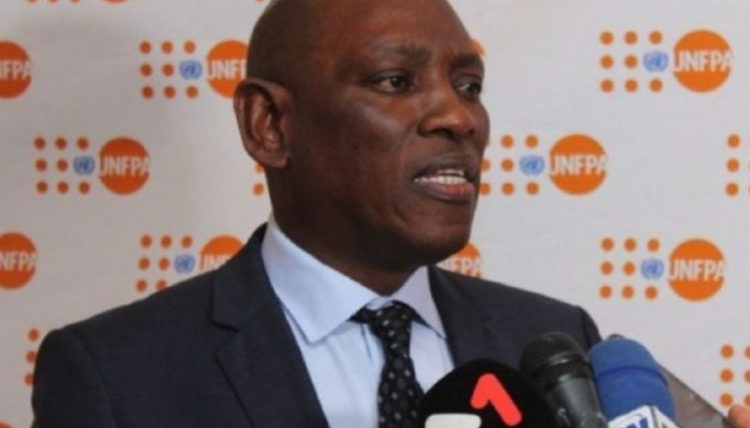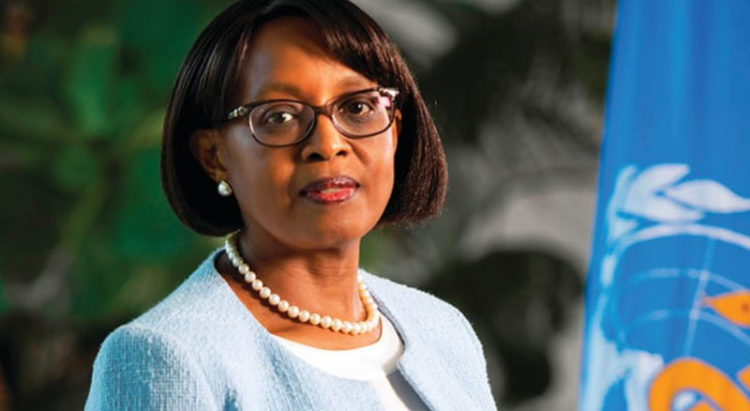So far, Central and West Africa have accounted for 54 % of infectious cases in Africa, with 11,000 contaminations. Those countries represent 25 % of total deaths, with 300 lost lives. Overall, Africa represents less than 1 % of known worldwide COVID-19 cases and deaths.
So far, only 12 African countries have reported “community transmission,” and eight of those countries are located in West and Central Africa. Community transmission means that the virus has gone beyond the initial spread by travelers or clusters around families and is now spreading more widely in the population.
Not everyone trusts coronavirus-related statistics, and the question mark might be bigger on the continent, even if “official” figures have proven to be problematic all over the world. Still, there is some good news. In early February, only Senegal and South Africa had laboratories that were capable of diagnosing COVID via testing. Today, 44 out of the 54 countries in Africa have that capability.
During a virtual press conference held on April 29th in Dakar, the regional directors of several big UN agencies operating in West and Central Africa addressed the current situation, and it’s far from being all doom and gloom. “Political leaders have taken early and courageous measures (on curfews, lockdowns, the closing of borders, along with massive prevention campaigns)”, said Mabingue Ngom, regional director of United Nations Population Fund (UNFPA).
The Senegalese economist, who is also the president of the UN group of directors in West and Central Africa, also pointed to the fact that many West African countries are “building on the solid lessons learned during the Ebola outbreak of 2014 in Guinea.” That viral haemorrhagic fever was successfully eradicated thanks to a community-based approach, which focused on preventing, testing and tracking contacts.
“Today, the number of cases is cause for growing concern,” added Ngom, “and the need for support is clear, in a region where security and economic stability must remain a priority. Ever since the first case of COVID-19 was known on February 29th, the UN agencies have worked hand in hand with governments to prepare the response. We have also helped to act rapidly because we wanted to help locate, test and quarantine the potential cases.”
Some countries are sharing their knowledge on patient tracking and surveillance, and most should “opt for sanitary controls at the borders instead of closing them, considering the economic impact on populations,” added Ngom.
“Africans are not innately immune”
While Senegalese bioscientists at the Institut Pasteur in Dakar continue to work on developing a cheap and rapid test for COVID-19 that the World Health Organization seems really interested in, the truth is, a lot still needs to be done. Logistics should be in order before the pandemic hits its peak, warned the UN agencies.
The priority is to bring laboratory equipment for massive testing, while organizing corridors and air bridges to reinforce technical and human capacity in countries where public health systems seem to be failing. Those are the places where help is most urgently needed.
Although the current African picture is looking very different from the catastrophic prophecies coming out of the mouths of French and American pundits, no one should yet feel prematurely optimistic. “Africa is not immune,” said Dr. Matshidiso Moeti, regional director of the WHO in Dakar.
Clearly, she refutes any climate theory about the chances of Africa escaping a large pandemic, while scientists are working on the hypothesis that COVID-19 might not survive at high temperatures and humidity.
“There is no physical or environmental explanation for the current situation in Africa. The virus came in at a later stage, but it is everywhere now. Starting with the first three cases in Senegal nine weeks ago, the pace of the pandemic has accelerated. During the week of April 13th, cases rose at a rate of 113 % in Central Africa and 42 % in West Africa. If control measures don’t change, cases will double almost every week.”
Another narrative on the pandemic in Africa: children will be hit, too
As Ghana gets ready for the end of its lockdown, other countries can learn from its policy decisions. The highest rate of testing capacity stands at 30 tests for every 10,000 people, with an average capacity of 9 per 10,000 in West Africa, falling to 5 per 10,000 in Central Africa. By way of comparison, Italy has 200 tests for 10,000 people.
“We must not let our guard down by assuming that the impact of the virus could be less in Africa,” explained Christopher Nikoi, regional director of the World Food Program. “Even before the COVID pandemic reached our region, we were already facing a dire food security situation. We were looking at 21 million people who, between the months of June and September, will struggle to have enough food to eat.”
Some analyses show us that another 22 million people are going to fall into that situation because of the economic impact of COVID-19. Lots of people living from hand to mouth work every day in order to eat the next day. With lockdown measures, many livelihoods have been threatened.
“Much has been made in Europe around the fact that this pandemic is affecting mostly the elderly,” he added. “In Africa, children will be hit hard. Before COVID-19, 12 million children aged 6 months to 5 years were already at risk of being malnourished in 2020. Schools are closed, and that’s where 20 million children were able to have a meal each day. There is potential for malnourished children dying in Africa, and that will be very different from what we are seeing in Europe. We are asking the countries supporting the programs to participate more, notwithstanding their own needs.”
The UN agencies appealed to West and Central African countries, asking for $350 million, on top of the $550 million already pledged for the $2 billion fund that was launched on March 25th by UN Secretary General Antonio Guterres with a view to financing a global humanitarian plan for the most vulnerable countries. “It’s a matter of basic human solidarity,” said Guterres.


